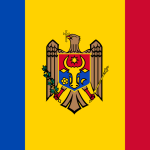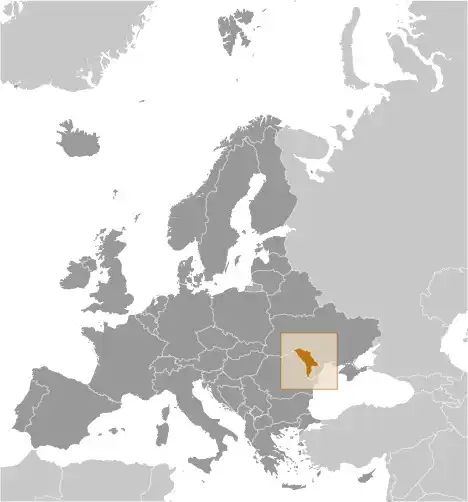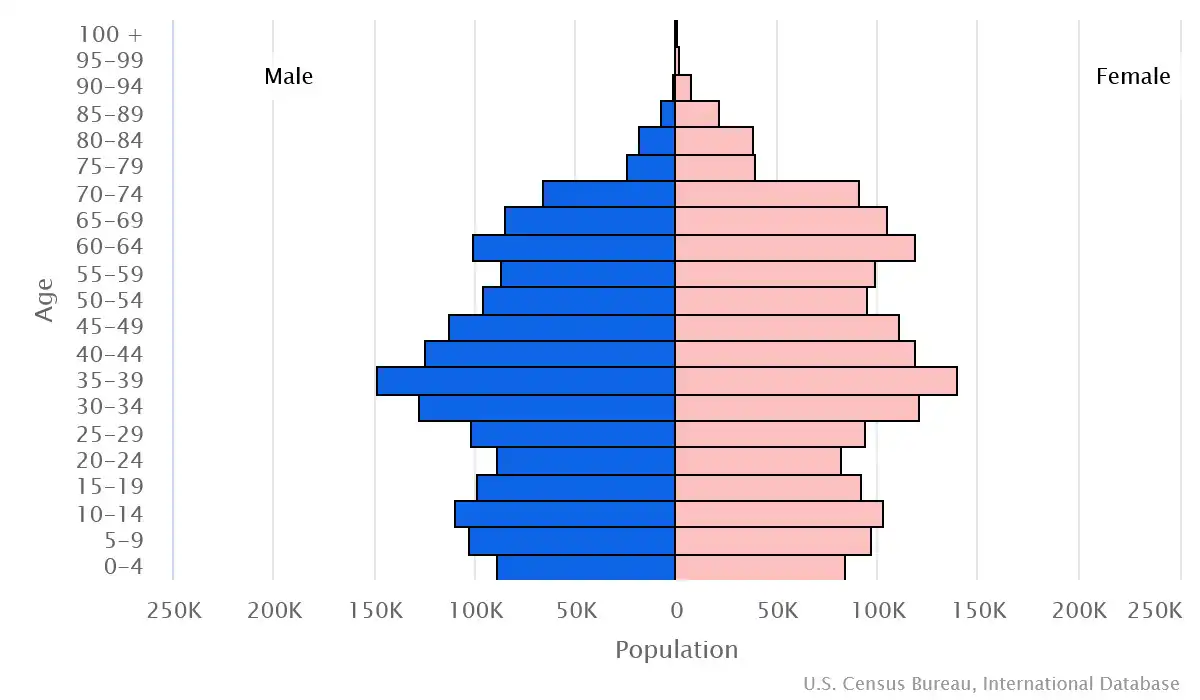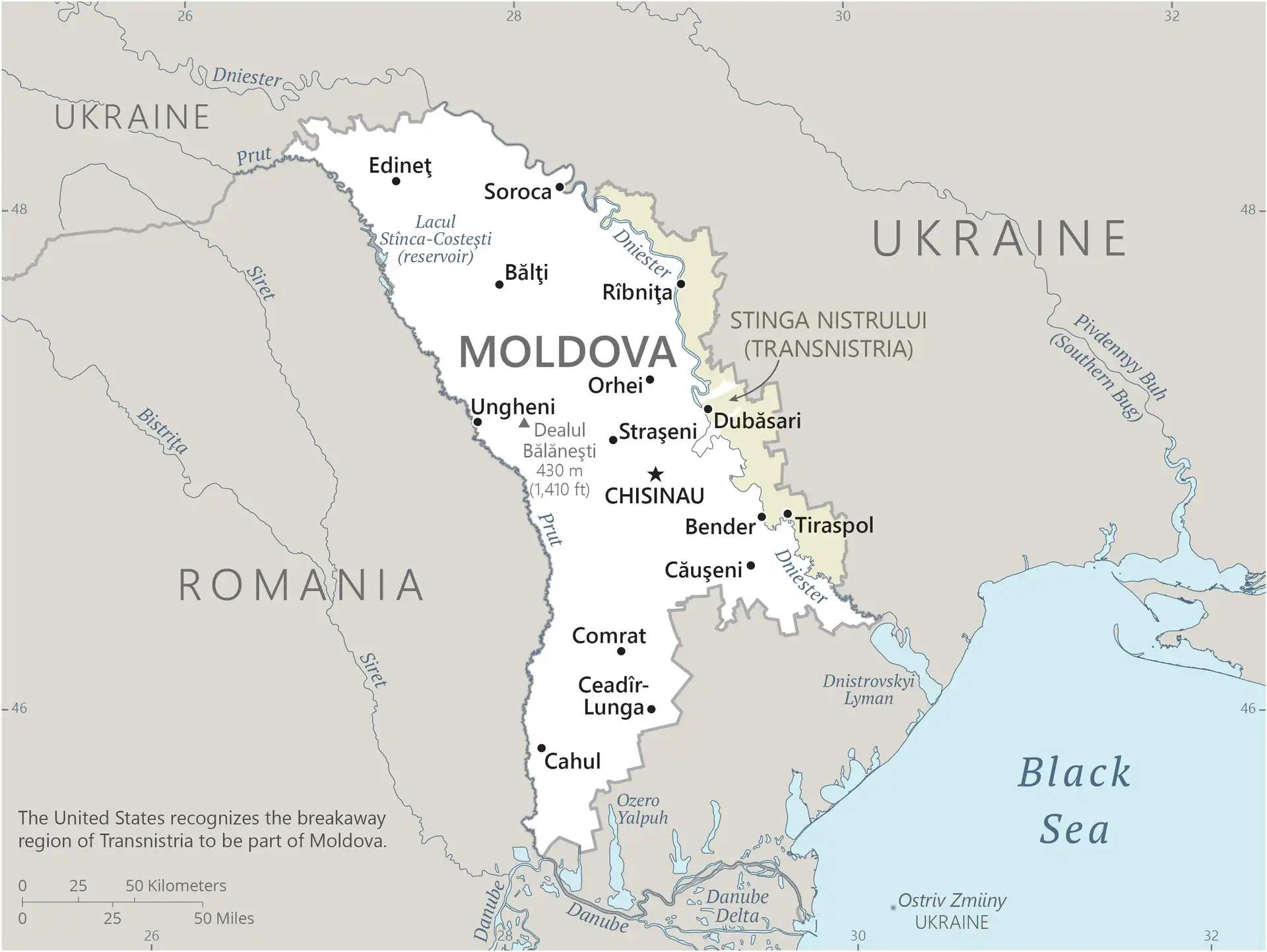
Moldova
Country Data Dashboard

| Government type: | parliamentary republic |
| Capital: | Chisinau in Romanian (Kishinev in Russian) |
| Languages: | Moldovan/Romanian 80.2% (official) (56.7% Moldovan; 23.5% Romanian), Russian 9.7%, Gagauz 4.2% (a Turkish language), Ukrainian 3.9%, Bulgarian 1.5%, Romani 0.3%, other 0.2% (2014) |
People & Society
Ethnicity (2014 est.)
Religion (2014 est.)
Age structure

Economy
Economic overview
upper middle-income Eastern European economy; sustained growth reversed by COVID-19; significant remittances; Russian energy and regional dependence; agricultural exporter; declining workforce due to emigration and low fertility
Real GDP (purchasing power parity) in Billion $
Real GDP per capita in $
Exports & Imports in billion $
Top 5 Import Partner in 2022 (59%)
Top 5 Import Commodities in 2022
- refined petroleum ⛽
- natural gas 💨
- cars 🚗
- plastic products ♻️
- insulated wire 🔌
Top 5 Export Partner in 2022 (59%)
Top 5 Export Commodities in 2022
- refined petroleum ⛽
- insulated wire 🔌
- garments 👕
- seed oils 🛢️
- corn 🌽
Geography
Map

Area
Natural resources
- lignite 🪨
- phosphorites 🪨
- gypsum ⚪🪨
- limestone 🪨
- arable land 🌱
Climate
moderate winters, warm summers
Historical Background Information
A large portion of present-day Moldovan territory became a province of the Russian Empire in 1812 and then unified with Romania in 1918 in the aftermath of World War I. This territory was then incorporated into the Soviet Union at the close of World War II. Although Moldova has been independent from the Soviet Union since 1991, Russian forces have remained on Moldovan territory east of the Nistru River in the breakaway region of Transnistria.
Years of Communist Party rule in Moldova from 2001 to 2009 ultimately ended with election-related violent protests and a rerun of parliamentary elections in 2009. A series of pro-Europe ruling coalitions governed Moldova from 2010 to 2019, but pro-Russia candidate Igor DODON won the presidency in 2016, and his Socialist Party of the Republic of Moldova won a plurality in the legislative election in 2019. Pro-EU reformist candidate Maia SANDU defeated DODON in his reelection bid in 2020, and SANDU's Party of Action and Solidarity won a parliamentary majority in an early legislative election in 2021. Prime Minister Natalia GAVRILITA and her cabinet took office in 2021. In early 2023, Moldova's parliament confirmed a new cabinet led by Prime Minister Dorin RECEAN, which retained the majority of the former ministers.
